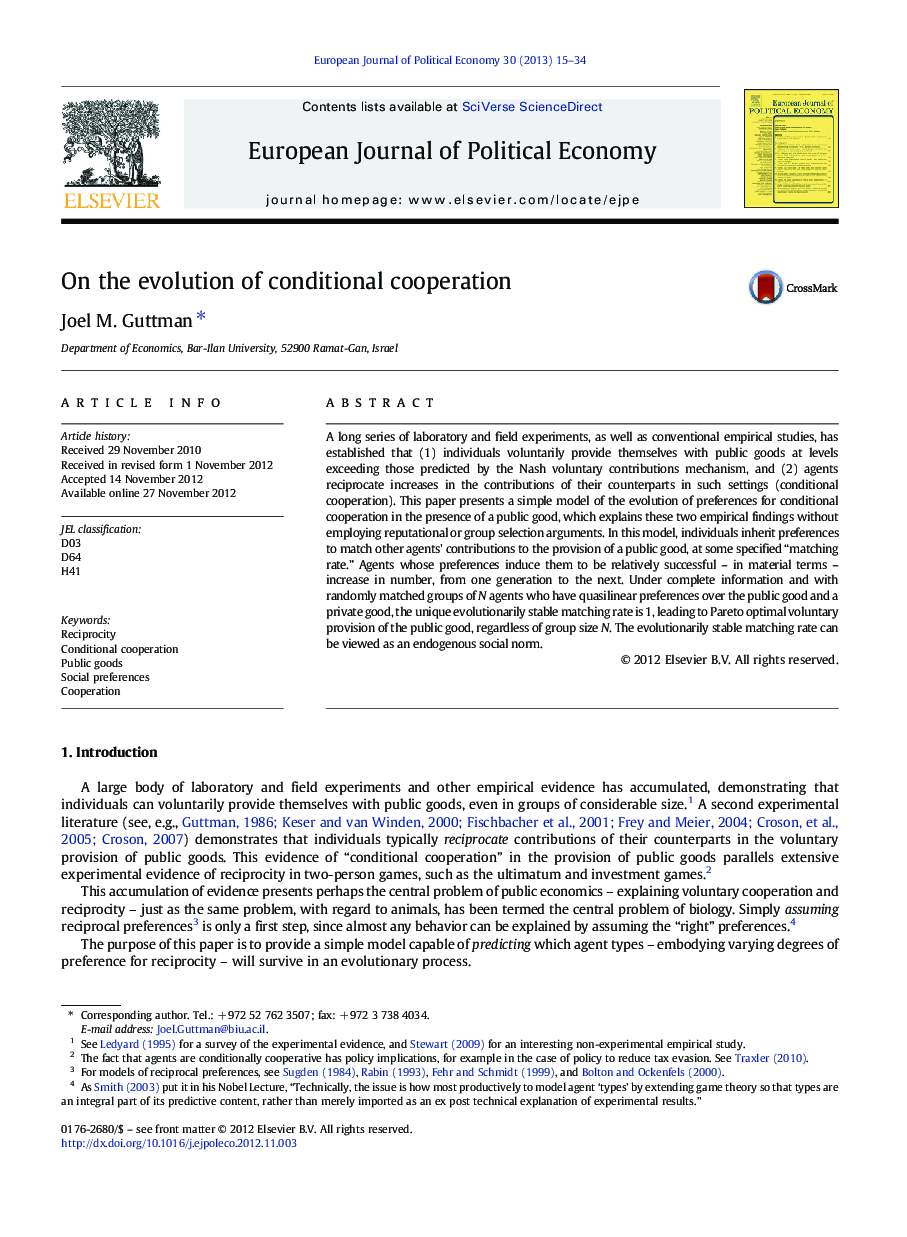| کد مقاله | کد نشریه | سال انتشار | مقاله انگلیسی | نسخه تمام متن |
|---|---|---|---|---|
| 5068118 | 1476897 | 2013 | 20 صفحه PDF | دانلود رایگان |
A long series of laboratory and field experiments, as well as conventional empirical studies, has established that (1) individuals voluntarily provide themselves with public goods at levels exceeding those predicted by the Nash voluntary contributions mechanism, and (2) agents reciprocate increases in the contributions of their counterparts in such settings (conditional cooperation). This paper presents a simple model of the evolution of preferences for conditional cooperation in the presence of a public good, which explains these two empirical findings without employing reputational or group selection arguments. In this model, individuals inherit preferences to match other agents' contributions to the provision of a public good, at some specified “matching rate.” Agents whose preferences induce them to be relatively successful - in material terms - increase in number, from one generation to the next. Under complete information and with randomly matched groups of N agents who have quasilinear preferences over the public good and a private good, the unique evolutionarily stable matching rate is 1, leading to Pareto optimal voluntary provision of the public good, regardless of group size N. The evolutionarily stable matching rate can be viewed as an endogenous social norm.
⺠Experiments show that people conditionally contribute to provision of public goods. ⺠Model shows: preferences to match others' contributions are evolutionarily stable. ⺠Two-stage game, in which players make (a) initial and (b) matching contributions. ⺠Preferences for zero “matching rates” are not, in general, evolutionarily stable. ⺠Model predicts higher public good provision than predicted by standard models.
Journal: European Journal of Political Economy - Volume 30, June 2013, Pages 15-34
